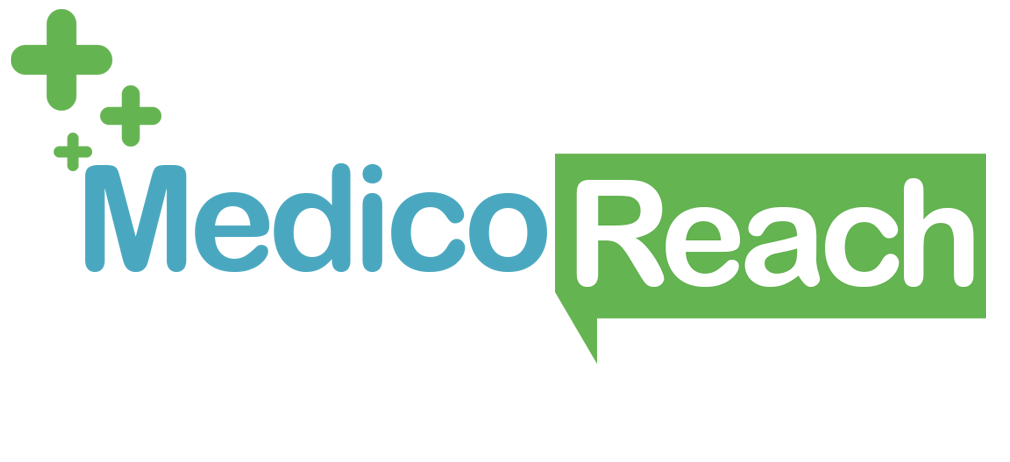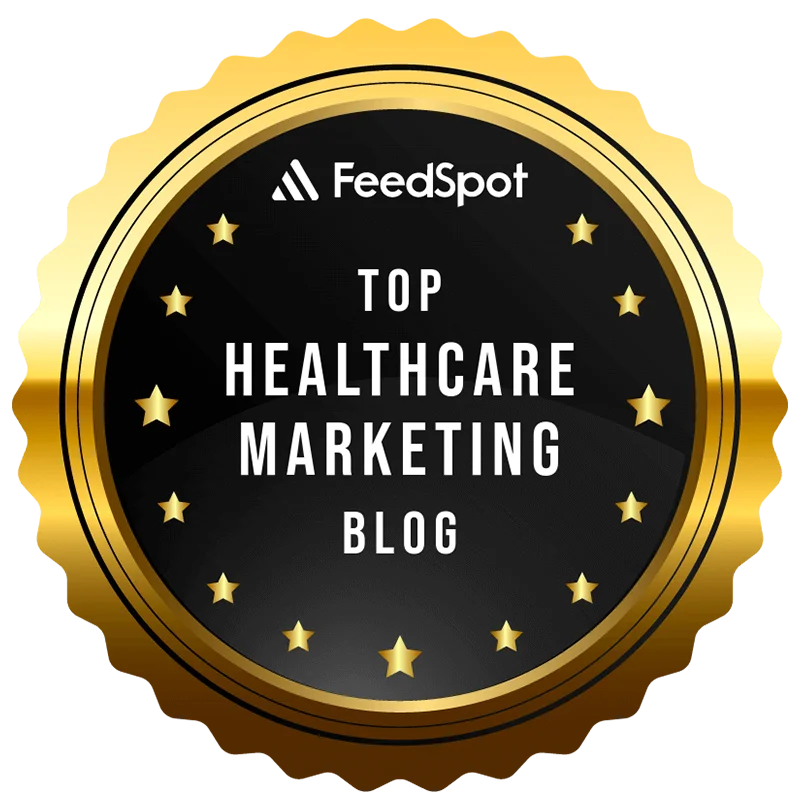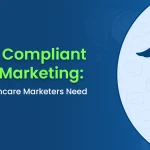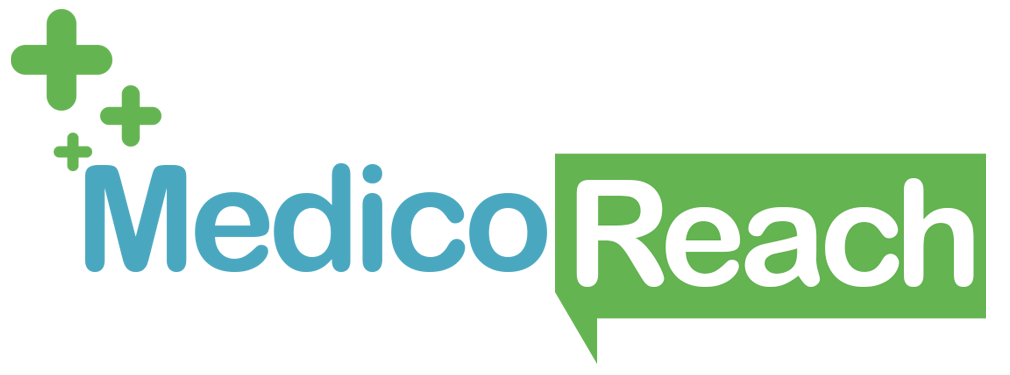The pharmaceutical sector has witnessed a steep growth in recent times. With the use of trailblazing digital platforms, cost-effective technologies, big data analytics, blockchain, and artificial intelligence (AI), the landscape is undergoing a massive transition.
The Grand View Research published a report highlighting the stark growth prospects of the pharma industry. The global pharmaceutical manufacturing market stood at USD 405.52 billion in 2020 and will project growth of USD 4.18 billion during 2020-2024. The paradigm shift towards integrated, intelligent, and data-rich technologies is propelling the growth of medicines manufacturing.
Are you intrigued to know what technologies will rule the pharma market and how they can benefit your business in 2023?
Let’s find out!
Top Emerging Trends that Will Rule the Pharmaceutical Industry
Succeeding in any industry under new and challenging landscapes requires profound insight into what’s shaping the sector for the future. The pharmaceutical industry is no different.
The rising demand for technological advancement and the unprecedented need for quick resolutions in the post-pandemic world has put undue pressure on the industry to adapt. Hence, looking closer at the future trends in pharma industry only makes sense for businesses to stay afloat in the healthcare market.
1. Artificial Intelligence to Accelerate Innovation
The adoption of AI and machine learning is rapidly growing. Besides, it has caught the attention and minds of medical practitioners, as several clinical research companies and laboratories are working on fine-tuning AI technologies for clinical use. Poised to grow at a CAGR of 29.4% from 2022 to 2030, the pharma industry will reach USD 9,241.34 million by 2030.
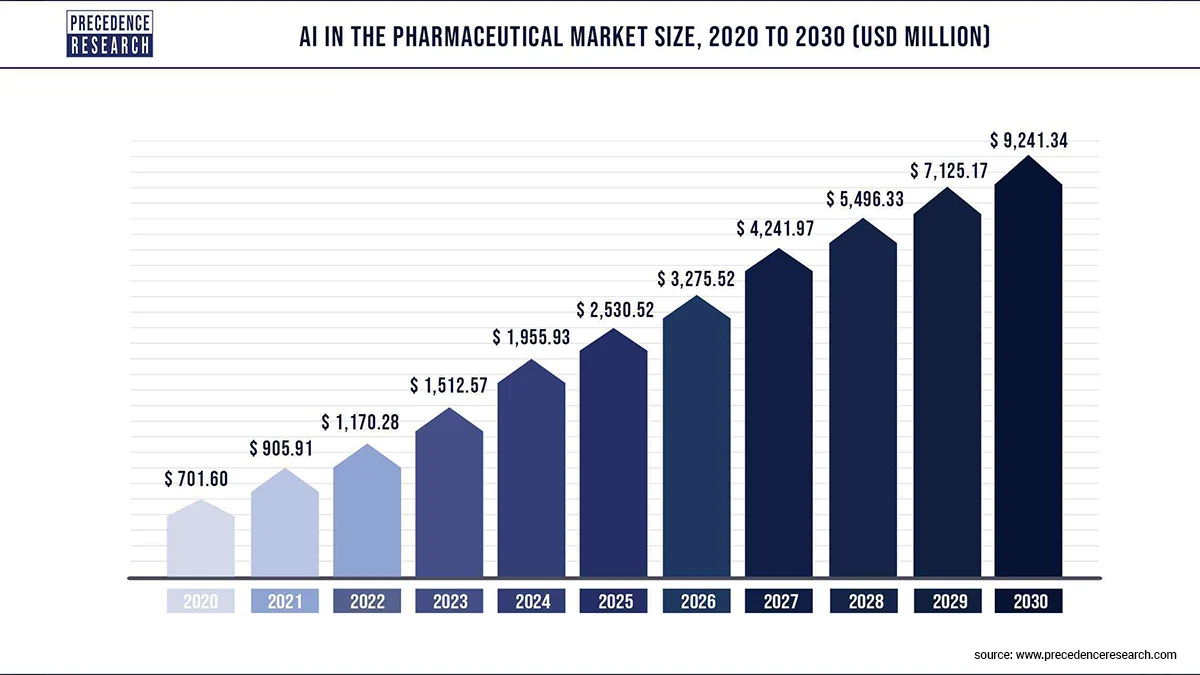
The market size of AI in the pharmaceutical: Source
Technological advancements in AI for medicines discovery and reduction in total time involved in the medicines discovery process are some factors driving its growth.
Here are some more applications of AI in healthcare and pharma
- Medicines discovery and design can improve drastically. AI can play a significant role in designing new molecules, identifying novel biological targets, and more.
- A Cognizant study indicated that 80% of clinical trials fail to meet enrollment timelines. AI can lead to faster research, combining and extracting data into usable formats, making clinical trials more efficient and saving time.
- One of the crucial factors of a successful medicines trial is ensuring that participants take proper medicine dosage at the prescribed times. AI can help ensure adherence to protocols through remote monitoring and algorithms for evaluating test results.
All these use cases ensure that AI is the next big thing in the pharma industry, and the companies that adopt it will get a strategic advantage. Reflecting the same sentiments, Terry Lo, president and CEO of Vizgen, said, “We’ve already seen an explosion of AI approaches being utilized for medicines and biomarker discovery. I anticipate this trend will only continue in 2023.”
2. Infusion of Blockchain Technology
Blockchain technology has steadily established itself to be a significant trend in pharma industry, which faces several supply chain-related challenges. BSI Group estimates pharmaceutical cargo theft at over $1 billion yearly, accounting for nearly half of it only in the UK and the US. The infusion of Blockchain in pharma can help overcome these challenges and simultaneously enhance security and level of transparency.

Key benefits of the Blockchain in the pharma industry:
- Blockchain enables secured transactions worldwide and facilitates auditable trials to verify the source and quality of medicines.
- Pharma industries can perform trials without the risks of hacking, enhancing the enforcement of the latest medicines trials across channels.
Blockchain simplifies the tracing actions, thus ensuring secure transportation of fragile and sensitive APIs and other raw materials.
3. The Emergence of the Pharmacovigilance Market
Medicines and vaccines often have unwanted and severe side effects. Such results call for stringent vigilance on the medicines quality and after-effects, nudging the emergence of the pharmacovigilance market. The global pharmacovigilance (PV) market stood at USD 7.80 billion in 2022 and will expand at a CAGR of 10.3% from 2023 to 2030.
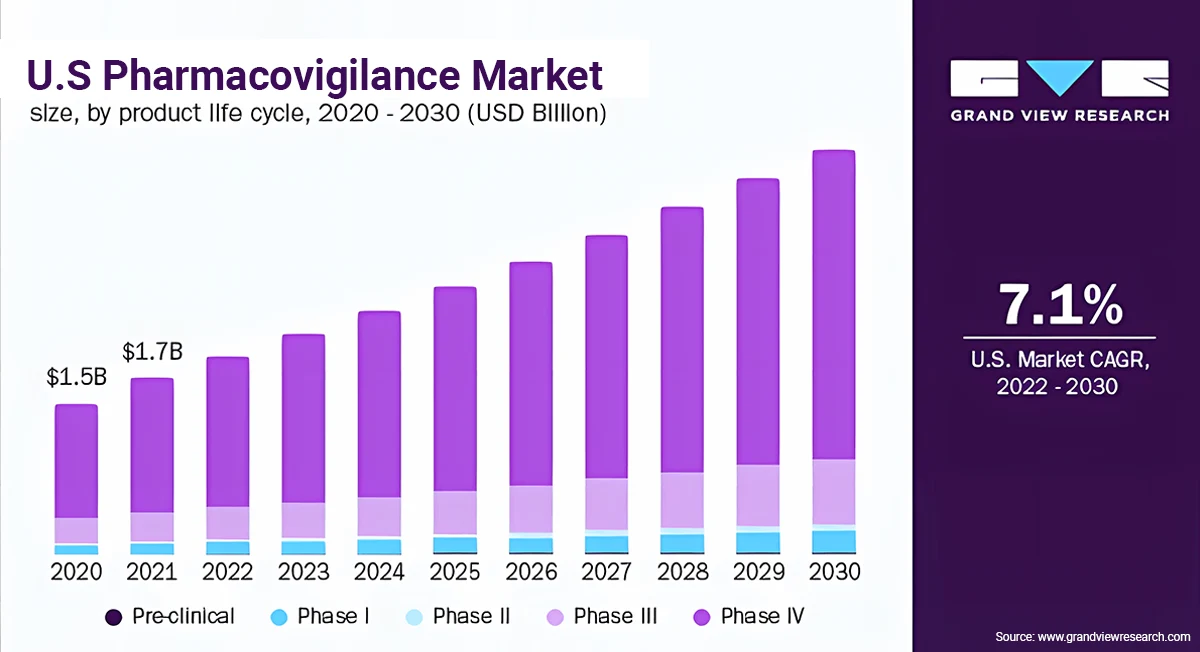
Grand View Research Pharmacovigilance market predictions: Source
- Monitoring the safety of cancer medicines is crucial, giving rise to the market with the oncology segment of 26.9% share in 2022 and anticipated to grow at the fastest CAGR of 11.1%.
- The excessive surge in database and data distortion can prevent companies from identifying medication errors, off-label use cases, acute and chronic poisoning, and many other detrimental medication effects. PV allows companies to apply data mining for critical decision-making and risk assessment.
Pharmacovigilance will continue to play a vital and influential part in developing novel medicines and therapies.
4. Big Data and Data Analytics
As pharma companies are scrambling to emerge at the top and innovate, data analytics can offer the ability to perform in-depth competitor analysis and improve in-house processes with data-driven insights. As a result, various investors from the healthcare and pharma domains have invested around $4.7 billion in big data analytics.
In 2020, GlobalData Plc reported that the data and analytics market in the pharma sector stood at $1.4 billion. Big data can revolutionize the pharma market and has brighter prospects for the medical discipline in 2023.
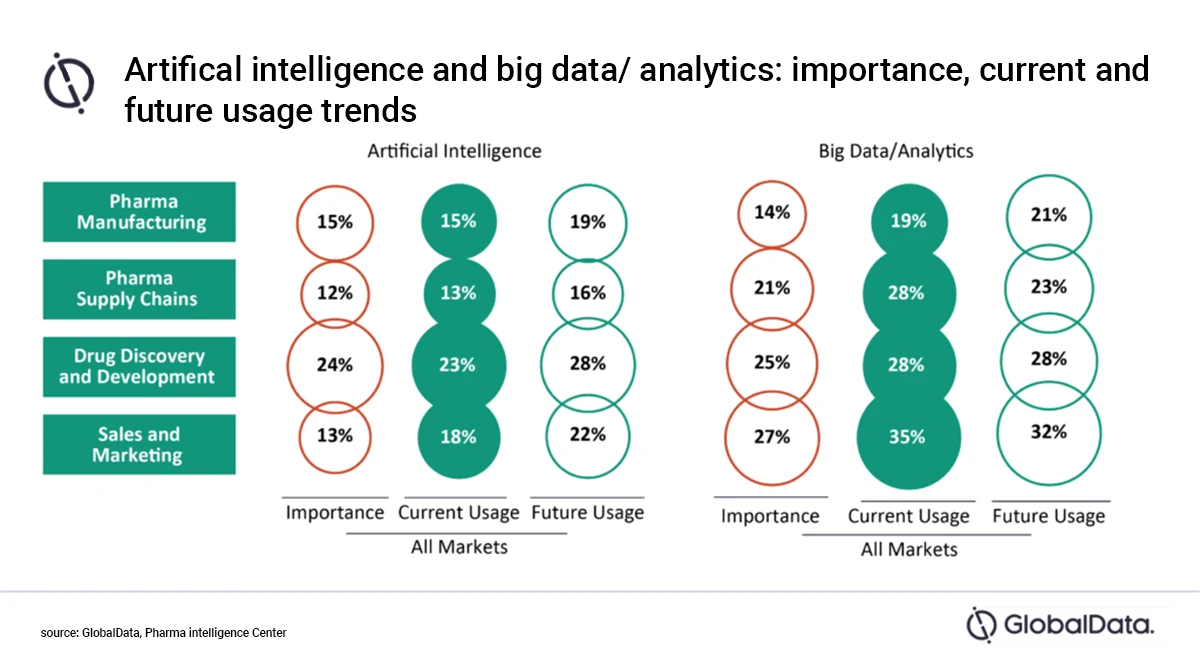
Big data and analytics market overview for the pharma industry: Source
Implementing big data analytics in the pharmaceutical and healthcare industries can affect the following:
- According to a study, the estimated research and development spend for a new medicines is $1.1 billion. Big data can help clinical trial design, allowing researchers to leverage genetic makeup, historical patient data, past trial results, demographics, and more to find the right participants.
- Big data allows space for predictive analysis or predictive modeling, which can help researchers predict how medicines will interact, their toxicity, and inhibition.
Pharma companies can utilize big data to predict the sale of a particular medicine owing to various demographic factors.
5. R&D in Personalized Medicine
Customized or precision medicine offers tremendous prospects for treating many illnesses. As a result, the worldwide custom medicine industry will rise to US$ 155.76 billion by 2027.
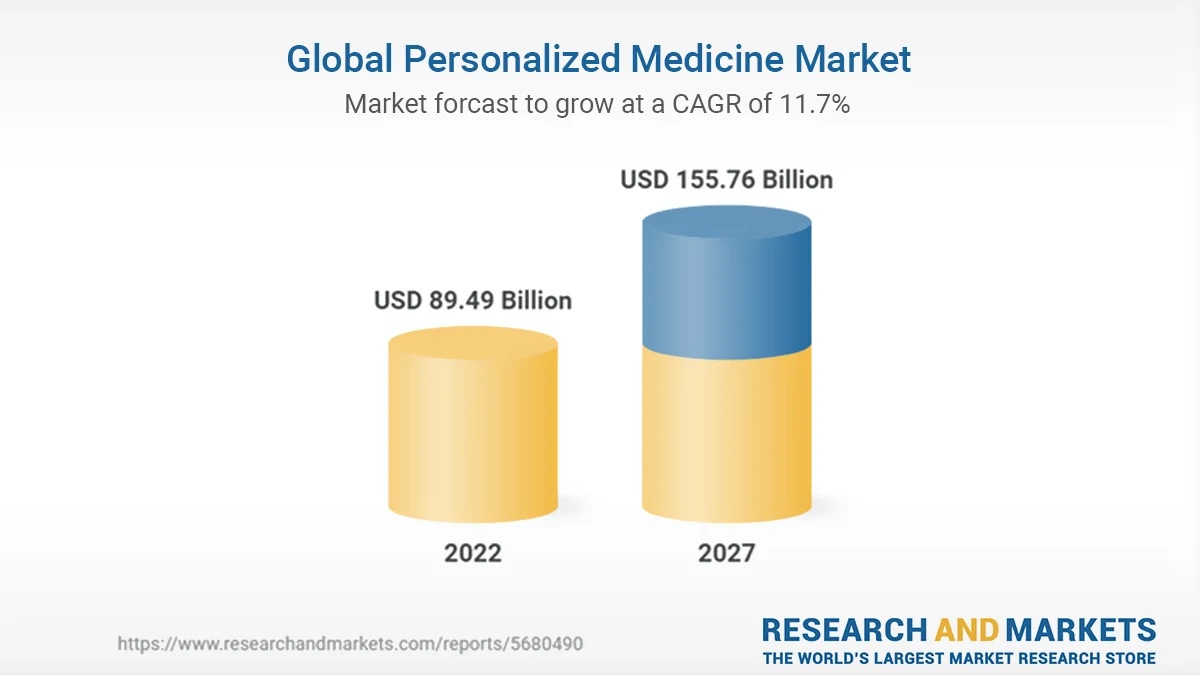
Global personalized medicine market forecast for the year 2027: Source
- The leading pharma firms are designing revolutionary, custom-made treatment methods.
- Digitalization has become essential in all areas for pharmaceutical businesses to get an edge, deliver accurate results, and improve operations.
Companies that stay at the forefront of technological advancements will continue to thrive and capture new opportunities in the pharma sector.
The Gleaming Future Ahead of Pharma Industry
The COVID-19 pandemic opened new business opportunities in the healthcare industry. It forced all companies to rethink many aspects of their business, and the same is true for the pharma industry. It highlighted the need for improved speed and accuracy to find novel medicines and treatment methods at the demand in large quantities.
Further, the paradigm shift fueled the development of current trends, leaning toward exponential growth of the pharma sector. If you’ve been following recent trends in pharma industry, you should be ready for 2023. Now is the time for various B2B businesses targeting the pharma industry to buckle up, get competitive and align their strategies for propensity.
Use these top five trends to channel your marketing strategies to dominate the market.
